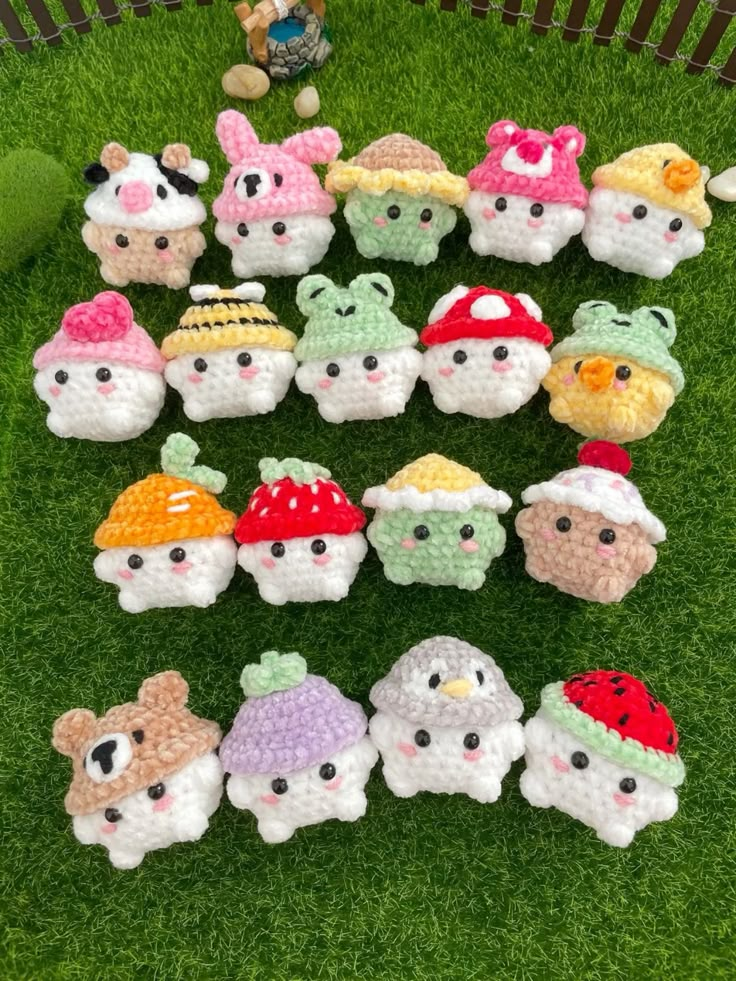When people talk about high school, they usually recall football games, Friday night bonfires, or the anxiety of exams. But when I think about my own high school years, one particular memory burns brighter than anything else: those weeks when I poured everything into selling tiny crochet toys on the sidewalk outside my house. What started as a small, desperate attempt to help a friend turned into an experience that changed the way I look at kindness, community, and trust.
It began with a conversation I wasn’t supposed to overhear. I had stayed after school one afternoon, working on a history project in the library. Most students had already gone home, but I could hear hushed voices carrying across the rows of bookshelves. It was my classmate, a quiet guy named Julian, talking with our guidance counselor.
“She doesn’t have much time left if we can’t cover the treatment,” he whispered, his voice breaking.
My heart sank. I didn’t need to hear more to piece things together. His mother had been sick for a while, but no one ever spoke openly about it. Julian wasn’t the type to ask for sympathy, and most kids didn’t know what he was going through. I only knew because I overheard him once telling a teacher he might miss class to take her to appointments.
That night, I couldn’t shake the sound of his voice. The desperation in it gnawed at me. I wasn’t rich, far from it, but I couldn’t just sit back knowing a classmate’s mother was fading without help. I tossed in bed, trying to think of something, anything I could do. Then my eyes landed on the basket of little crochet animals I had piled in the corner of my room.
Crochet had been my grandmother’s art. She taught me when I was eight, her wrinkled hands guiding mine as we twisted yarn into shapes. Over the years, I’d made hundreds of toys: tiny bears, cats, owls, even little dragons with button eyes. Most sat in boxes, given as gifts or left forgotten. They were never meant to be sold, but that night, the idea struck me like lightning: what if I sold them to raise money?

The very next day after school, I set up a folding table at the end of our yard. I made a big sign from cardboard that read: “Handmade Crochet Toys – All Proceeds for a Classmate’s Mom’s Treatment.” My handwriting was shaky, but my determination was steady. I lined up the little toys in rows, their stitched smiles staring back at me.
At first, I felt foolish. Cars drove past without slowing, and neighbors glanced curiously but didn’t stop. I sat there with my yarn-stained fingers and a sinking stomach, wondering if I’d miscalculated. But then an elderly woman with a kind smile approached.
“How much for the little owl?” she asked.
I stammered, unsure how to price something that had always been made out of love. “Five dollars?” I offered timidly.
She handed me a ten and told me to keep the change.
That small act lit a spark. Soon after, a couple of kids from the neighborhood stopped by, pointing at the dragons and begging their parents to buy one. Word spread faster than I could have imagined. Within a week, people were coming daily, and I had to crochet late into the night just to keep up with demand.
It felt incredible. Every toy I sold felt like a small piece of hope stitched together with yarn. Julian didn’t know at first; I didn’t want to embarrass him or make him feel like a charity case. But eventually, he found out.
One afternoon, he walked by my table, his eyes widening at the sign. “You’re… you’re doing this for my mom?”
I nodded nervously. “I just… I wanted to help. I know it’s not much.”
For the first time, I saw him smile without reservation. His gratitude was quiet but deep, and it made every cramped hand and sleepless night worth it.
Weeks passed. I had raised a few hundred dollars, and while it wasn’t nearly enough for full treatment, it felt like momentum. Hope was alive, and I clung to it tightly. That’s why the betrayal hit me so hard.
One evening, I returned home from school to find the cash box I kept hidden under my bed empty. At first, I thought I had misplaced it, but the box itself was still there, wide open. My heart pounded as reality set in: someone had stolen the money. Every dollar I had painstakingly raised was gone.
I felt crushed. All the hours on the sidewalk, all the blisters on my fingers, all the kind people who had trusted me with their money—it was gone in an instant. I didn’t want to accuse anyone, but deep down, I suspected it wasn’t some stranger breaking into my room.
Only a handful of people knew where I kept the box, and one of them was a neighbor kid who often hung around when I crocheted outside. He had asked too many times where I kept the money, and I had brushed it off as curiosity. Now I wondered if my dismissal had been a mistake.
That night, I sat on my bed staring at the empty box. I had no energy left to start over. My hands ached from weeks of work, my spirit felt broken, and the image of Julian’s grateful smile haunted me. I had failed him. I turned off the light and went to bed early, burying my face in the pillow, wishing I had never started if it was only going to end like this.
The next morning, I woke to the sound of engines rumbling outside. At first, I thought it was construction or a traffic jam, but the sound was too steady, too intentional. I pulled back the curtain—and my jaw nearly hit the floor.
Lined up in front of my yard were at least thirty motorcycles, gleaming in the sunlight. On each one sat a biker, leather jackets patched with insignias I didn’t recognize, helmets tucked under their arms, sunglasses reflecting the morning light. They weren’t just parked haphazardly—they were in perfect formation, like an army with a mission.

I stumbled outside, still in my pajamas, heart racing with confusion. My mom was already on the porch, equally stunned.
The largest biker, a towering man with a beard streaked with gray, stepped forward. His voice was gravelly but warm.
“You, the kid making toys for your friend’s mom?” he asked.
I swallowed hard and nodded.
He grinned. “Word travels, sweetheart. We heard about what happened with your cash box. That ain’t right. We don’t let kids fighting for good causes get stomped on.”
Before I could respond, another biker held out an envelope. Inside was a thick stack of bills—more money than I had ever seen in my life.
“This is from us,” the bearded man said. “We took up a collection. Every single one of us believes in what you’re doing. Don’t you give up now.”
I was speechless. My throat tightened, and tears blurred my vision. “I… I don’t know what to say.”
“You don’t have to say anything,” he replied. “Just keep crocheting. Keep showing people that one person’s kindness can ripple out further than they ever imagined.”
The bikers didn’t just hand me the money and leave. They stayed. Some bought toys right off the table, laughing as they strapped little crocheted bears and owls to their handlebars. Others sat cross-legged on the grass, watching me crochet with fascination, asking how I managed to turn yarn into something alive with character. A few even asked me to teach them the basics, fumbling clumsily with the hook but grinning like children when they managed a few stitches.
Neighbors began trickling out of their homes, drawn by the rumble of engines and the sight of leather-clad bikers doting over tiny yarn animals. At first, they looked wary, but soon the street was filled with laughter, conversation, and a sense of unity I had never experienced before.
By the end of the day, the bikers had doubled the donations in my envelope. More importantly, they promised to spread the word. And they did. In the following weeks, people from neighboring towns came to buy toys, donate money, or simply offer encouragement. Local newspapers picked up the story, calling it “The Yarn Revolution.” What began as one kid with a crochet hook turned into a movement powered by compassion and community.
As for Julian’s mom, the funds raised didn’t cover everything, but they were enough to get her into a new treatment program. It gave her time she otherwise wouldn’t have had. She saw the outpouring of love from strangers, from bikers to neighbors, and she cried tears of gratitude each time someone delivered another batch of toys or donations.
The betrayal of losing that first box of money no longer defined the story. Instead, it became the catalyst that drew in people I never would have expected to care. I learned that for every person who might try to take advantage of kindness, there are dozens more who will rally to protect it.
Even now, years later, I still crochet. Not for money, not because I have to, but because every loop of yarn reminds me of those weeks when a group of rough-looking bikers stood tall for a teenager with a folding table and a dream.
It taught me that kindness can wear leather jackets and ride roaring motorcycles. And it taught me that no matter how small an act of generosity feels at first, it can spark something much bigger than you ever imagined.
Because once upon a time, I sat defeated in the dark, thinking I had failed. And the very next morning, thirty bikers showed up in my yard to prove me wrong.